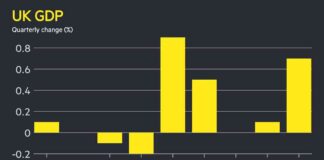Canada Bread, owned by Grupo Bimbo, has filed a lawsuit against Maple Leaf Foods for more than $2 billion. The lawsuit alleges that Maple Leaf lied about its involvement in a bread price-fixing conspiracy. This legal action comes after Maple Leaf filed a lawsuit against Grupo Bimbo, which was Canada Bread’s controlling shareholder until 2014.
Canada Bread claims that Maple Leaf used it as a “shield” to avoid accountability in the alleged price-fixing scheme. The Competition Bureau is also investigating this conspiracy, and Canada Bread is the only company that has been fined so far. In 2023, the company pleaded guilty to four counts of price-fixing and was fined $50 million. However, Canada Bread denies taking part in a lengthy conspiracy.
Grupo Bimbo’s lawsuit argues that Maple Leaf compelled Canada Bread to participate in the alleged conspiracy and kept this information hidden during the sales process. On the other hand, Maple Leaf is suing Grupo Bimbo and Canada Bread for defamation, stating that the accusations are baseless. Both companies deny each other’s claims, and none of the allegations have been tested in court.
Maple Leaf’s executive chairman, Michael McCain, vehemently denies the allegations and vows to vigorously defend against the lawsuit. Grupo Bimbo claims that it acquired Canada Bread based on false representations made by Maple Leaf regarding compliance with laws and business disclosures. The ongoing legal battle sheds light on the intricate web of accusations and denials surrounding the alleged bread price-fixing scandal.
The Competition Bureau’s investigation, which began in 2016, alleges that a significant amount was added to the price of a loaf of bread over 16 years. While some companies have settled, others continue to maintain their innocence and refute any involvement in the price-fixing scheme. The complexity of the legal proceedings underscores the gravity of the situation and the potential ramifications for the companies involved.
As the legal battle unfolds, the truth behind the alleged conspiracy and the extent of each company’s involvement remain to be determined. The outcome of these lawsuits will not only impact the companies directly involved but also have broader implications for competition laws and consumer trust in the food industry. The intricacies of the case highlight the importance of transparency, compliance, and ethical business practices in maintaining a fair and competitive market for consumers.






















